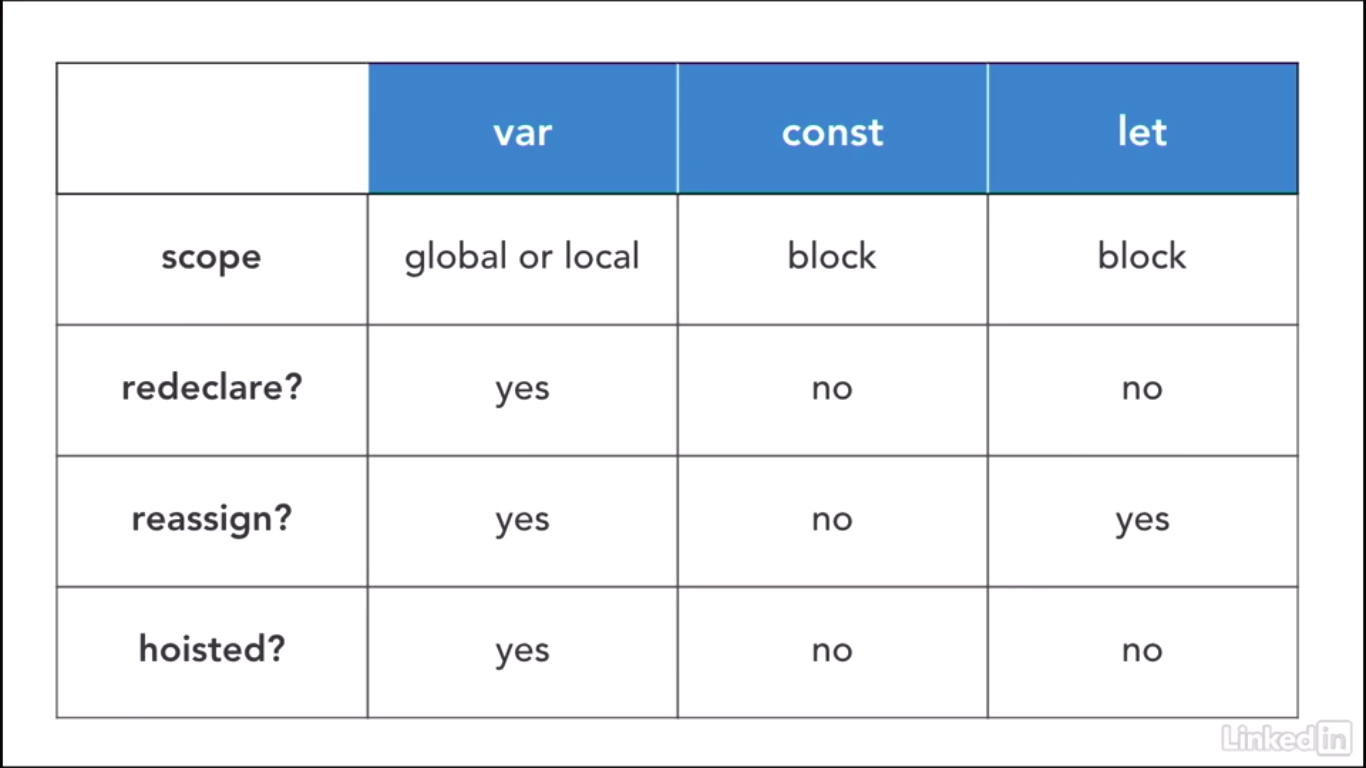There are three ways to declare variables in JavaScript, but what are the real differences?

Javascript was created with a single keyword to define a variable, this reserved word is var.
but since version 6 (ECMAScript 2015) of the language specification, two new keywords have appeared: let and const.
If we had to summarize the definition of these two new ways of declaring variables, we could say that:
let is used to define a local variable
const is used to declare a constant reference
Be careful, a constant reference doesn't mean the value behind a reference is "immutable", but that the reference itself is immutable.
But let's see exactly how the operation of the variables var, let, and const are different in practice:
Stored as a whole?
- var: yes
- let: no
- const: no
When var is used to declare a variable outside of a function, then this variable will necessarily be referenced in the global object of the script.
In browser, this variable is called
windowand in a NodeJS environment it's calledglobal.
Is it limited to the scope of a function?
- var: yes
- let: yes
- const: yes
The scope of a function is the only one that puts all variables on the same footing and declaring a variable inside a function will logically not affect the rest of the codes.
Is it limited to the reach of a block?
- var: no
- let: yes
- const: yes
For those wondering what a block is, it's simply the set of statements enclosed between two braces "{...}" except for when those braces delimit a function or a JSON object.
A statement block is often found after an if, else, for, while, etc. So remember that a variable declared with the keyword "var" in a for will automatically be global.
Unless the for is contained in a function, of course.
Can be reassigned?
- var: yes
- let: yes
- const: no
Reassigning means that we will either modify the value of the variable when playing with primitive types or that we will modify the reference of the variable when using a complex type.
Note that if const is used to reference an object, the content of that object can still be modified.
Can be redeclared?
- var: yes
- let: no
- const: no
Redeclaring a variable (except when its scope allows) isn't possible unless it's with var, but this is not a good practice and it's advisable to avoid doing so.
Is affected by hoisting?
- var: yes
- let: no
- const: no
Hoisting is a more complex notion that occurs when interpreting Javascript code, if you're not familiar with this concept I advise you to read this article
Conclusion
When declaring a new variable, remember to prioritize const first, then let, and lastly var as a last resort, but you shouldn't need it anymore.
Be careful, however, let and const are only supported by browsers that are compatible with ES6, so you will have to use a transpiler to support all environments.
And that's it. You're done.
Follow Cedrick Lupembe for more web-related content.
If you decide to try some of these tips or need any help, send me a message on Twitter or comment on the link to your website. I'd love to check it out!
